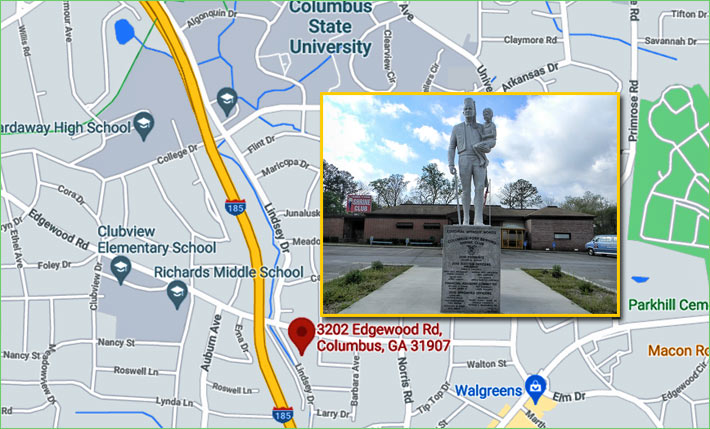
The Columbus-Fort Benning Shrine Club informed T-Mobile’s site developer that they didn’t care if they had a lease to build a tower – they couldn’t change the property’s zoning and joined Municipal Communications’ lawsuit against the City of Columbus, GA as a defendant.
Lawsuits against zoning boards that reject an applicant to construct a cell site tower are more frequently ruled in favor of the plaintiff’s reliance upon the Federal Telecommunications Act of 1996.
Municipal Communications of Atlanta is suing Columbus, GA, and its mayor and council members for blocking its request to build a T-Mobile tower to improve coverage in the area near heavily trafficked I-185.
The lawsuit, filed in February, claims that the Columbus City Council provided no written record of why a special exception application for a 150-foot monopine on a 3.2-acre lot owned by the Columbus-Fort Benning Shrine Club was denied.
However, this complaint had an unique turn last week when the U.S. District Court for the Middle District of Georgia ruled that the Shrine club will be allowed to intervene as a party defendant.
The Shrine club maintains that because Municipal does not own the property, Municipal did not have standing to file the zoning applications in the first place under a Columbus ordinance.
The Shrine club further claims that the lease between it and Municipal is invalid or that the scope of the lease does not authorize Municipal’s conduct.
The federal court found that as the fee simple owner and alleged lessor of the property upon which the cell tower is proposed, “the Shrine Club has a direct, substantial, and legally protectable interest in the property that is the subject of this action. The relief Municipal seeks will directly affect the property owned by the Shrine Club.”
Municipal, in a filing, said that the Shrine club will not be harmed if the property is rezoned. However, Judge Clay Land ruled, “The present record does not support this contention.”
Judge Clay also ruled as unpersuasive Municipal’s argument that intervention by the Shriner’s club should be denied because the club can litigate the validity of the lease in a separate state court action.
“While the present action may not estop or bar the litigation of the lease-related issues in another action, the resolution of those issues in this action could have some practical impact on their resolution in the state court action,” the court found.














